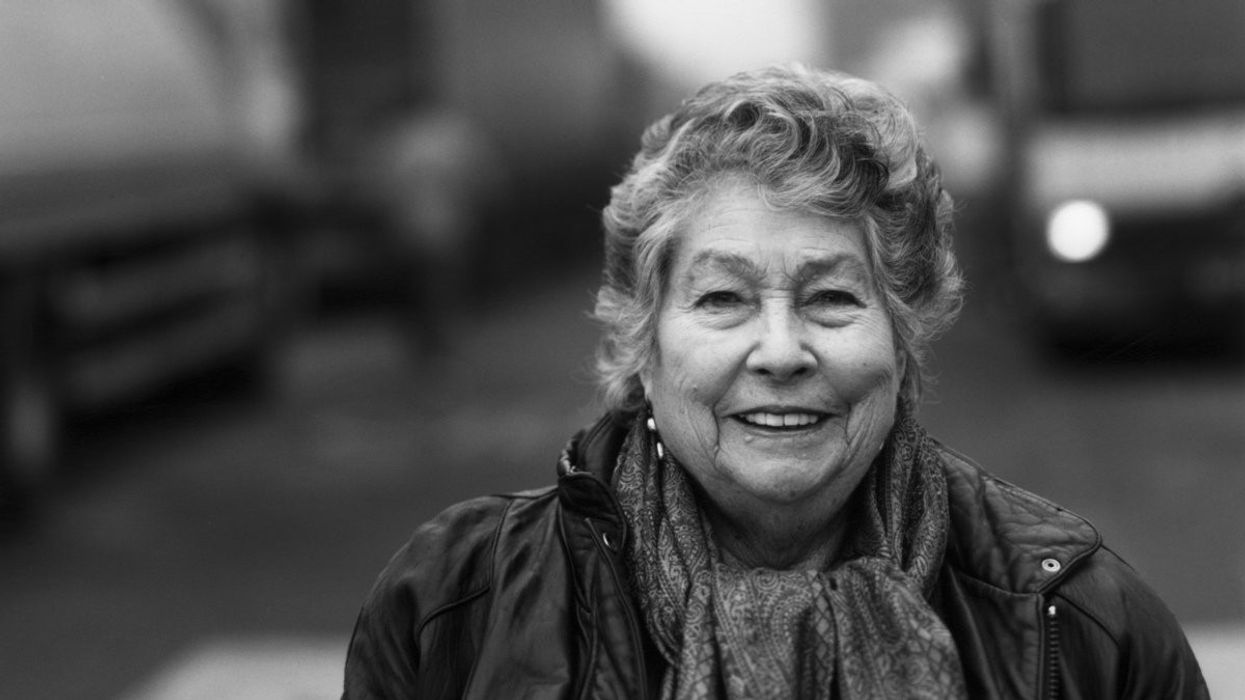RIP Legendary 'Lawrence of Arabia' Editor Anne V. Coates
Anne V. Coates, the legendary Oscar-winning film editor, has passed away at the age of 92.

This morning, BAFTA tweeted out the sad news that legendary film editor Anne V. Coates passed away in California at the age of 92. Over the course of a seven-decade career, Coates edited more than fifty feature films, received five Academy Award nominations, (winning one for Lawrence of Arabia in 1962, along with a lifetime achievement award in 2016) and was a pioneer for women behind-the-scenes in Hollywood. During her career, Coates brought her sensibility and keen cinematic eye to historical epics as well as comedies, dramas, and thrillers, working with directors as diverse as David Lean, David Lynch, Steven Soderbergh, and Sidney Lumet.
Coates was born in England in 1925 and first worked as a nurse. She got her start in the film industry courtesy of her uncle J. Arthur Rank, a devout Methodist whose company distributed religious films. When Coates expressed interest in the industry, Rank put his niece to work, fixing prints of short films that were distributed all over England.
While she initially expressed interest in being a director, Coates found that she enjoyed editing and her enthusiasm and skill landed her a job at Pinewood Studios. Her first job there was as an assistant to editor Reggie Mills on director Michael Powell's 1948 classic The Red Shoes (for which Mills would win an Oscar), and her first film credited as editor was 1952's The Pickwick Papers.
Coates continued to work steadily and, in 1962, won an Academy Award for her work on David Lean's epic Lawrence of Arabia, which also contains one of the most famous cuts in film history:
Two years ago, I had the pleasure of seeing Coates discuss her career, and during the event, she revealed that the legendary cut was actually a happy accident. Originally planned as dissolve, the cut that has become so legendary was actually supposed to be temporary (until the optical printer could apply the effect.) Both Coates and Lean had an affinity for the French New Wave, though, and the resulting cut was so jolting that (minus two frames) they kept it. The film also featured another cut that exemplified Coates subtle skill: the scene where the character of Ali is introduced at the well. By abjuring the music that would traditionally accompany such an introduction, Coates and Lean turned the sound of the horse's approach into its own kind of music.
Coates, among the first generation of female film editors (along with other early pioneers like Dede Allen, Margaret Booth, and Dorothy Spencer) has often been cited as an inspiration by female film editors like Thelma Schoonmaker, Sally Menke, and Margaret Sixel. Of her place as a woman in the industry, Coates told Walter Murch, "In a way, I’ve never looked at myself as a woman in the business. I’ve just looked at myself as an editor. I mean, I’m sure I’ve been turned down because I’m a woman, but then other times I’ve been used because they wanted a woman editor."
"In a way, I’ve never looked at myself as a woman in the business. I’ve just looked at myself as an editor."
Coates remained in demand throughout her career, and after her work with Lean, went on to collaborate in the cutting room with many other celebrated directors, like Sidney Lumet on Murder on the Orient Express and David Lynch, on 1980's The Elephant Man, for which she earned her third Oscar nomination (she also received nominations for Out of Sight, In the Line of Fire, and Becket).
Coates' career encompassed the change from film to digital, and she started using the Lightworks system, though she has been quoted as saying, "At my age, it was quite difficult to do—I was mid-career. I kicked the machine quite a lot." Nevertheless, she said that she "realized that they’re really just the same. It was just a question of calming down and cutting just like I had before. Telling the story, making it funny, having the actor’s performance."
Coates continued to work as recently as 2015's 50 Shades of Grey, of which she said, regarding the film's racey content, "I wanted more passion. But the audiences liked it." She would never shy away from a challenge, whether it was getting her foot in the door in the film industry, going toe-to-toe with famous directors, or adjusting to a new digital world.
Coates brought a sense of good humor and quiet skill to the cutting room. She was a protean talent, able to tackle almost every sort of film, and she brought an old school, can-do attitude to the challenges of film editing. Coates was married once, and her three children all work in the film industry: Anthony and James Hickox as directors, and daughter Emma E. Hickox as an editor. She will be greatly missed.
For more on Coates' career and some lessons from her films, check out our post on the editor here.
Source: BAFTA












